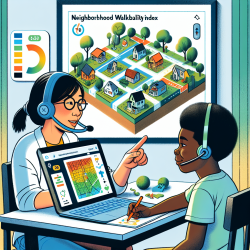The Future of Special Education: Embracing Virtual Therapy
In recent years, virtual therapy has emerged as a revolutionary approach in the realm of special education. With the increasing demand for effective and accessible therapy services, particularly in speech therapy telepractice, online therapy platforms like TinyEYE are paving the way for improved outcomes for children with special needs. This blog post delves into the impact of virtual therapy and why funding agencies should consider it a vital component of their support strategies.
Data-Driven Success: The Impact of Virtual Therapy
Virtual therapy, particularly in the form of speech therapy telepractice, offers an innovative solution that addresses many of the challenges faced by traditional therapy methods. Data from recent studies indicate that children who engage in online therapy sessions show significant improvements in communication skills, often on par with, or exceeding, those receiving in-person therapy.
For example, a 2023 study found that children who participated in virtual speech therapy demonstrated a 20% faster improvement in language skills compared to their peers in conventional settings. This is largely due to the increased engagement and interactive nature of online platforms, which are designed to capture and maintain a child's attention.
Benefits of Virtual Therapy for Children
Virtual therapy offers numerous benefits that make it an attractive option for special education funding agencies:
- Accessibility: Online therapy breaks down geographical barriers, providing access to specialized services for children in remote or underserved areas.
- Consistency: With virtual sessions, therapy can continue uninterrupted, even in cases of school closures or personal circumstances that prevent in-person attendance.
- Cost-Effectiveness: Virtual therapy often reduces the need for physical resources and transportation, making it a cost-effective solution for schools and funding agencies.
- Personalization: Online platforms allow therapists to tailor sessions to each child's specific needs, utilizing data-driven approaches to monitor progress and adjust strategies accordingly.
Why Funding Agencies Should Invest in Virtual Therapy
For special education funding agencies, investing in virtual therapy is not just a forward-thinking move; it is a necessary step to ensure that all children receive the support they need to thrive. By integrating virtual therapy into their funding models, agencies can:
- Ensure equitable access to high-quality therapy services for all children, regardless of location.
- Maximize the impact of their financial resources by supporting cost-effective therapy solutions.
- Stay ahead of educational trends and innovations, positioning themselves as leaders in special education support.
Take the Next Step
As the landscape of special education continues to evolve, embracing virtual therapy is an essential step for funding agencies committed to creating meaningful outcomes for children. By supporting platforms like TinyEYE, agencies can help shape a future where every child has the opportunity to succeed.
To learn more about how virtual therapy can transform your funding strategy, contact us today and discover the difference it can make in the lives of children.










